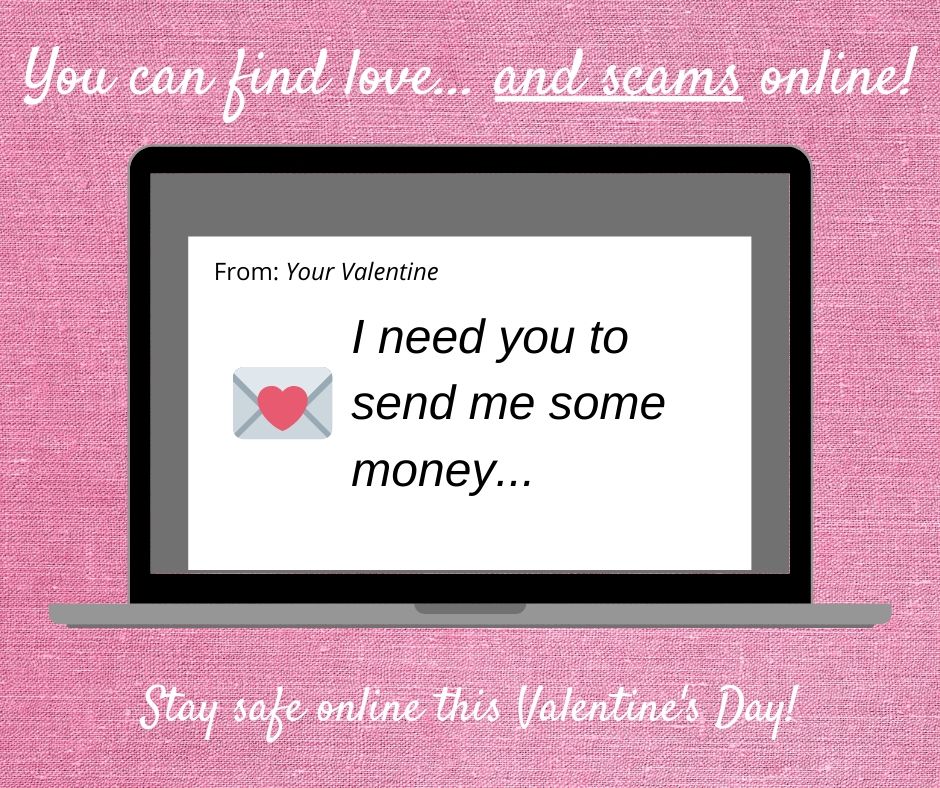Looking for love online? The Consumer Assistance Program is here to help you make sure that your personal information and money are secure!
Romance Scams
How it works: The scammer creates a fake profile on a dating site or app. They may also initiate contact through Instagram, Facebook, Words With Friends, or Google Hangouts. Then, the scammer strikes up a relationship with their victim, gains their trust, and maintains sustained contact.
Spotting the scam: The scammer spins a story and asks you to send them personal information or money. They may ask you to send gift cards, mail cash, or wire them money via Western Union or MoneyGram.
What to do: End all communications with the scammer. Block the individual and/or report them to the website or app company. Do not send money or reveal personal information such as: social security number, bank accounts, credit card numbers, photo of your driver’s license, etc. If you have sent money or given the scammer access to sensitive information, call the Consumer Assistance Program.
For more information about Romance Scams, see our blog post from February 2018.
Sextortion Emails
How it works: You receive an email from an unknown source. The message claims that they know your passwords and have planted malware on your computer. They claim that the malware has captured evidence of all your computer activity – including sensitive photos or visits to adult websites. They threaten to share this evidence with all of your email or social media contacts. The scammer demands hush money in the form of gift cards, Bitcoin, or wire transfers.
Spotting the scam: The message might look generic and have numerous typos. They demand that you respond quickly, maybe within 24 hours. The passwords they claim to have appear to be old or may be log-in information you use for a website.
What to do: Do not reply to the message. Do not send money or personal information. Change your passwords to ensure your online security, especially if a website you use has recently experienced a data breach. Do not click on any links or attachments on the email. Make sure that your antivirus software is up to date.
Adult Website Pop-Ups
How it works: You are visiting an adult website when a pop-up message appears. The pop-up might be flashing or include sound. The pop-up may claim to be “Windows Support” or state that “Your computer may have a virus!” It is designed to pressure the user into a sense of panic. The message might prompt you to call someone for technical assistance.
Spotting the scam: Real computer tech support specialists will never ask you to call them in this manner. The pop-up may demand immediate action, payment, or prompt you to download something.
What to do: Turn off your computer and disconnect from the internet. Make sure that your antivirus software is up to date and functioning. If necessary, you may decide to seek out assistance from a trusted tech support professional.
Remember: some scammers are betting that topics of romance and sex can be sensitive or even embarrassing. Please don’t let these feelings keep you from calling CAP to get help! The reality is that we regularly hear from consumers who have been affected by these scams. Pick up the phone and give us a call if you feel you may have been scammed: 1-800-649-2424.

Contributing Writer: Madison Braz
Content Editor: Crystal Baldwin
